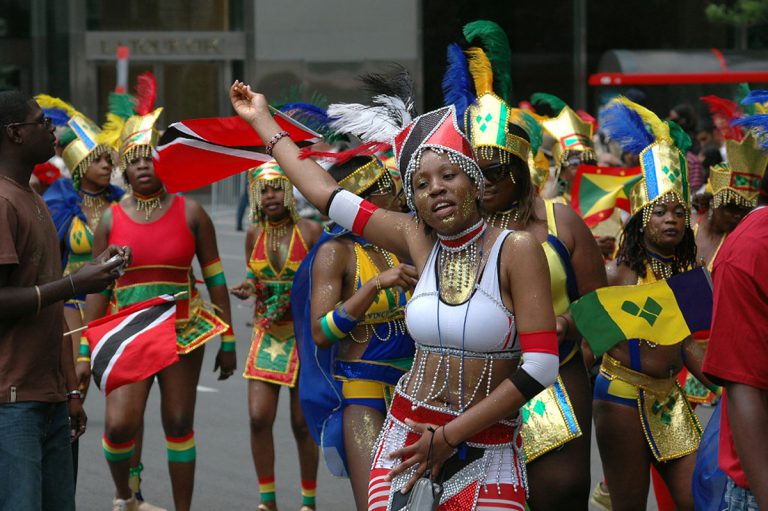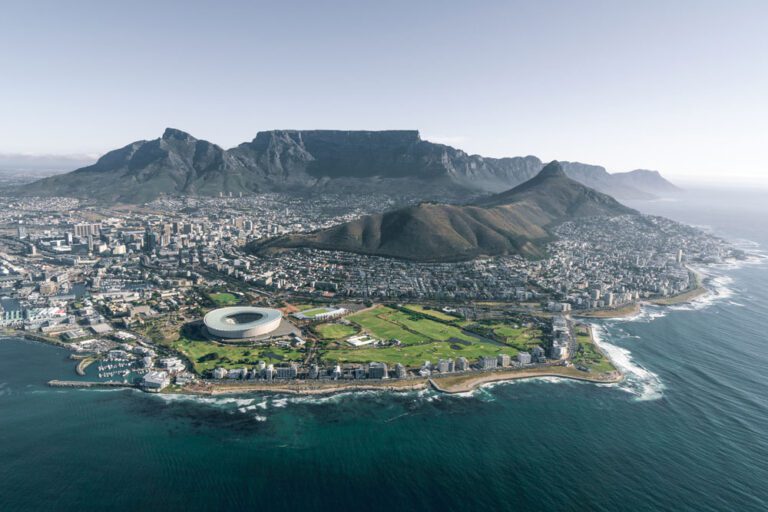10 Reasons Why Bo-Kaap Should Be on Your South African Bucket List
Last updated on May 10th, 2023 at 08:47 pm
Bo-Kaap, located in Cape Town, South Africa, is a vibrant and historically significant neighborhood that offers you a unique cultural experience.
Originally settled by freed slaves and political exiles from Indonesia, Malaysia, and other parts of Africa, Bo-Kaap is a melting pot of cultures, languages, and traditions.
In this article, we will explore 10 must-see attractions in Bo-Kaap, South Africa, to help you make the most of your visit to this fascinating neighborhood.
1. Explore the neighborhood
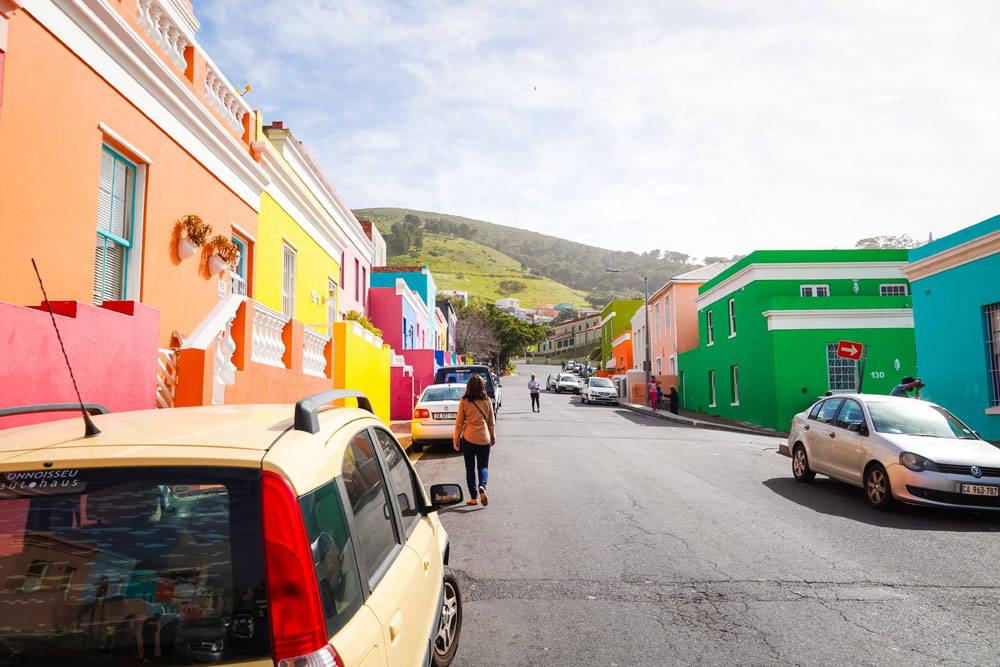
One of the most iconic features of Bo-Kaap is its brightly colored houses. Walking through the neighborhood feels like stepping into a rainbow, with houses painted in shades of pink, blue, green, and yellow.
The origins of the colorful houses are unclear, but some believe that they were painted in vibrant colors by residents as a way to celebrate their freedom and identity after the end of apartheid.
Take a guided walking tour of the neighborhood which will take you past some of the most beautiful and historically significant houses or you can simply wander through the streets on your own, admiring the colorful facades and taking plenty of photos along the way.
2. Visit the Bo-Kaap Museum
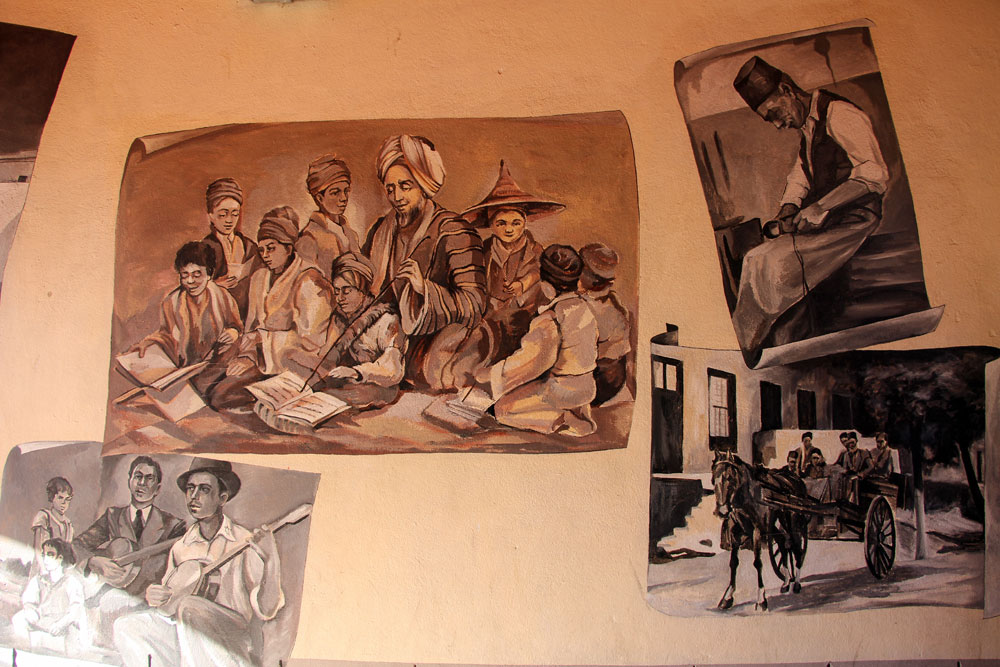
The Bo-Kaap Museum, located on Wale Street, is a must-visit destination for anyone interested in the history and culture of Bo-Kaap. Housed in one of the neighborhood’s oldest buildings, the Bo-Kaap Museum provides a fascinating look at the history and culture of the community.
The museum’s exhibits cover a wide range of topics, including the history of the area’s Muslim community, the Cape Malay culture, and the influence of Dutch and British settlers on the neighborhood. You can learn about the different trades and crafts practiced by residents, as well as the music, dance, and cuisine that are an integral part of Bo-Kaap’s identity.
In addition to the exhibits, the museum also hosts a range of events and activities throughout the year, including cultural performances, cooking demonstrations, and workshops on traditional crafts.
A visit to the Bo-Kaap Museum is an essential part of any trip to the neighborhood and will give you a deeper appreciation of its rich history and cultural heritage.
3. Take a walking tour
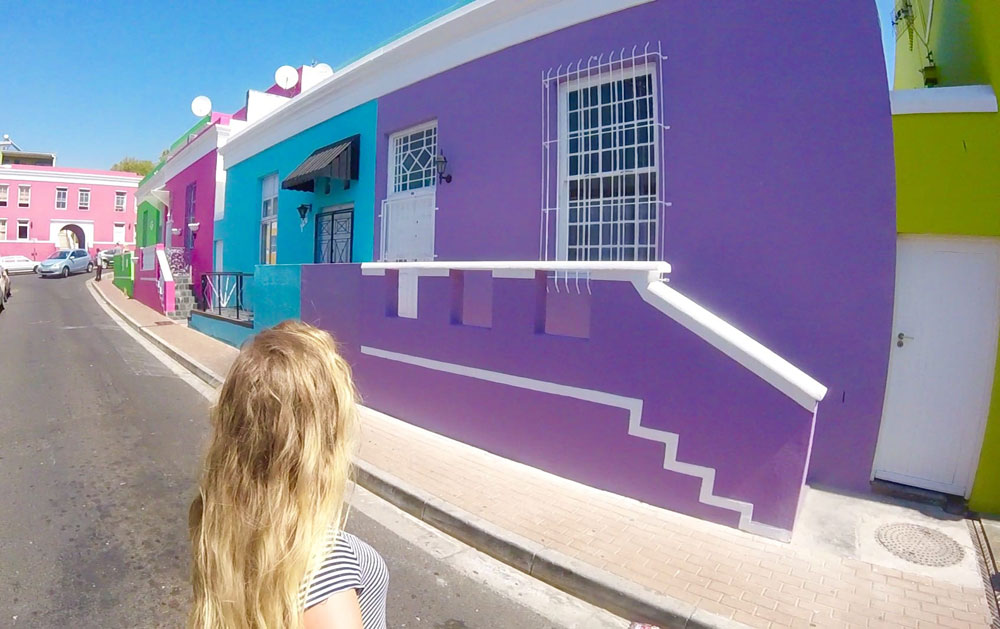
On a walking tour, you’ll be led by a knowledgeable guide who will take you through the colorful streets, pointing out significant landmarks and sharing stories about the people who lived there. You’ll learn about the area’s Muslim heritage and the influence of Dutch and British settlers on the neighborhood, as well as the role that Bo-Kaap played in the struggle against apartheid.
Walking tours typically last about two hours and can be booked in advance or arranged on the day. They are suitable for all ages and fitness levels and provide a fascinating insight into one of Cape Town’s most unique and culturally significant neighborhoods.
4. Sample Cape Malay cuisine

Bo-Kaap is famous for its delicious Cape Malay cuisine. Cape Malay cuisine is a fusion of traditional South African, Malaysian, and Indonesian flavors, and is a must-try for any visitor to Bo-Kaap.
There are several restaurants and cafes in Bo-Kaap that specialize in Cape Malay cuisine, serving up dishes such as bobotie (a spiced meat dish topped with egg custard), biryani (a flavorful rice dish made with meat or vegetables), and samosas (crispy, triangular pastries filled with spiced meat or vegetables).
One of the most popular spots for sampling Cape Malay cuisine is Biesmiellah, a family-run restaurant that has been serving up traditional dishes for over 100 years. Their menu features a range of curries, stews, and biryanis, as well as classic Cape Malay desserts such as koeksisters (syrupy, twisted pastries) and boeber (a sweet, creamy milk pudding).
For a more informal dining experience, head to the Bo-Kaap Kombuis, a cozy restaurant housed in a colorful Cape Dutch-style building. Here you can sample a range of traditional dishes, including bobotie, chicken curry, and sosaties (spiced skewers of meat).
No visit to Bo-Kaap is complete without trying at least one Cape Malay dish, and with so many delicious options to choose from, you’ll be spoilt for choice!
5. Visit the Atlas Spice Trading Center

A visit to the Atlas Spice Trading Center is a must-do activity for anyone interested in the rich flavors and aromas of Cape Malay cuisine. Located on Wale Street in Bo-Kaap, this historic spice shop has been in business for generations and is renowned for its high-quality spices and unique blends.
As you step inside the Atlas Spice Trading Centre, you’ll be greeted by the heady scent of exotic spices, from cinnamon and cardamom to coriander and cumin. The shop is a treasure trove of different spices, herbs, and seasonings, many of which are sourced from local farmers and spice merchants.
The staff at Atlas Spice Trading Center are passionate about their products and are always happy to offer advice and recommendations on the best spices to use for different dishes. They also sell pre-made spice blends, such as Cape Malay curry powder and garam masala, which make it easy to recreate the flavors of Bo-Kaap at home.
In addition to selling spices, the Atlas Spice Trading Center also offers guided spice tours, where you can learn more about the history and uses of different spices and see how they are processed and packaged. The tours are led by knowledgeable guides and provide a fascinating insight into the world of spice trading.
6. Attend a cultural event

Throughout the year, Bo-Kaap hosts a range of events and festivals, showcasing the area’s rich cultural heritage and celebrating its diverse community.
One of the most popular events in Bo-Kaap is the Cape Town Minstrel Carnival, which takes place every year on January 2nd. This colorful parade sees thousands of brightly dressed minstrels take to the streets, singing and dancing to traditional Cape Malay music. The carnival has its roots in the slave tradition of celebrating the New Year and is a symbol of resilience and cultural pride.
Another highlight of the Bo-Kaap cultural calendar is the Cape Malay Choir Festival, which takes place in March and brings together choirs from across the Western Cape to perform traditional songs and hymns.
Other cultural events in Bo-Kaap include the Ramadan Night Market, where you can sample traditional foods and shop for handmade crafts and gifts, and the Bo-Kaap Kombuis Cooking School, where you can learn to cook classic Cape Malay dishes under the guidance of expert chefs.
7. Climb Signal Hill

Signal Hill is a prominent landmark that overlooks the city of Cape Town and offers stunning panoramic views of the surrounding areas. This is a popular activity for visitors to the area, offering a chance to get some exercise while taking in the breathtaking panoramic views of Bo-Kaap, Cape Town, Table Bay, Lion’s Head, and the surrounding mountains.
The hike to the top of Signal Hill is relatively easy and takes around 45 minutes to an hour, depending on your fitness level. The trail is well-marked and offers a gradual ascent, with plenty of opportunities to stop and rest along the way. As you climb higher, the views become more and more spectacular, with sweeping vistas of the city, the ocean, and the iconic Table Mountain in the distance.
At the summit of Signal Hill, you’ll find a large flat area that’s perfect for taking in the views or having a picnic. Many people choose to visit at sunset when the sky turns a range of beautiful colors and the city lights begin to twinkle below.
For those who don’t fancy the climb, there’s also a road that leads to the top of Signal Hill, which is accessible by car or bike. However, hiking up is a more rewarding experience and allows you to fully appreciate the natural beauty of the area.
8. Visit the Auwal Mosque
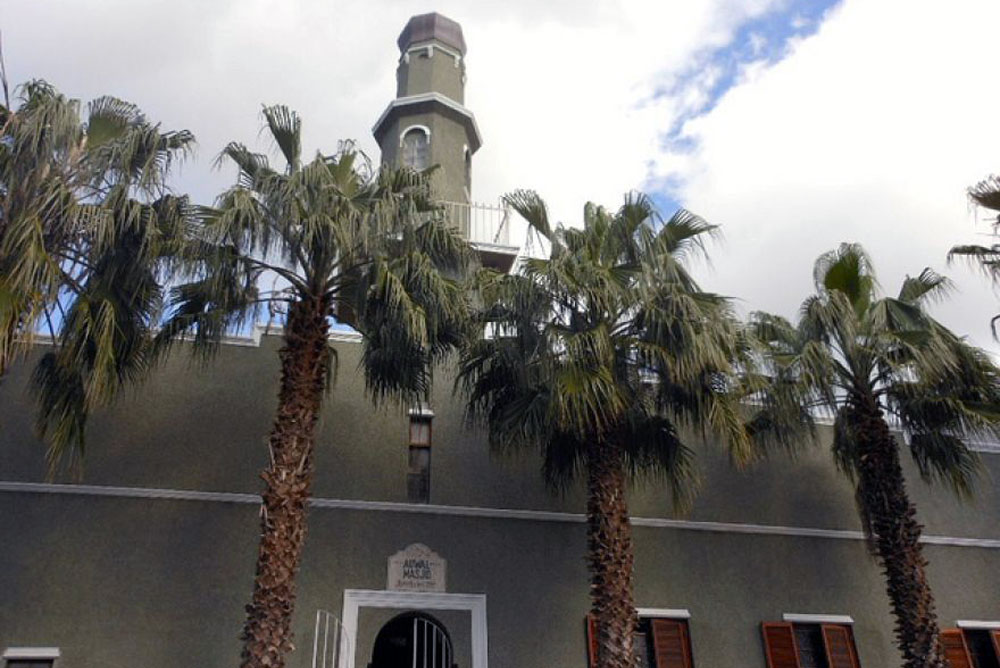
The Auwal Mosque, located in Bo-Kaap, is the oldest mosque in South Africa and a significant landmark in the area. Built in 1794, the mosque has a rich history and is a symbol of the enduring Muslim heritage of Bo-Kaap.
As a visitor to Auwal Mosque, you’ll be taken on a guided tour of the building, which includes a visit to the prayer hall, the courtyard, and the library. The mosque is an impressive example of Cape Dutch architecture, with a simple and elegant design that reflects the area’s Islamic heritage.
One of the highlights of the Auwal Mosque is its rich collection of Islamic books and manuscripts, which includes rare and valuable works dating back to the 18th century. The mosque’s library is open to visitors, and scholars and researchers can arrange to view the manuscripts by appointment.
The Auwal Mosque is also significant for its role in promoting religious tolerance and diversity in South Africa. In the early 19th century, the mosque served as a sanctuary for slaves and political refugees, many of whom were Muslims from Indonesia, Malaysia, and Madagascar. The mosque played a crucial role in helping these communities to preserve their cultural and religious identities in a new and unfamiliar land.
9. Shop for souvenirs

Bo-Kaap is an excellent destination for shopping, with many opportunities to purchase unique and beautiful souvenirs to take home.
One of the best places to shop for souvenirs is the Bo-Kaap Craft Market, which takes place every Saturday and offers a range of beautiful handcrafted items, including jewelry, pottery, and textiles. The market is held in the courtyard of the Bo-Kaap Museum and is a great opportunity to meet local artisans and support small businesses.
Another popular shopping destination in Bo-Kaap is Wale Street, which is lined with independent boutiques and stores selling everything from clothing and accessories to homeware and art. Many of the stores are locally owned and operated, and offer unique and stylish items that you won’t find anywhere else.
Shopping in the neighborhood is a great way to support local businesses and bring home a piece of South Africa’s vibrant cultural heritage.
10. Enjoy the nightlife
Bo-Kaap has a vibrant nightlife scene with plenty of restaurants, bars, and clubs to explore. The neighborhood’s unique mix of cultures and traditions is reflected in its nightlife, which is colorful, lively, and welcoming.
One of the best places to experience the neighborhood’s nightlife is the Cape Malay Jazz Club, which offers live music and dancing in a cozy and intimate setting. The club showcases local musicians and performers and is a great way to experience the unique blend of Cape Malay and jazz music that’s synonymous with Bo-Kaap.
For a more casual night out, head to one of the neighborhood’s many bars and pubs, such as the Bo-Kaap Kombuis or the Alexander Bar. These venues offer a relaxed atmosphere, great drinks, and the opportunity to meet locals and travelers alike.
If you’re in the mood for a more high-energy night out, Bo-Kaap has several nightclubs that offer DJs and dancing until the early hours of the morning. The House of Machines is a popular spot, with a rooftop bar and DJ sets that draw crowds from all over the city.
Finally, for a truly unique nightlife experience, head to the Bo-Kaap neighborhood during one of its many cultural festivals and events. These celebrations include food fairs, street parties, and live performances, and offer a chance to experience the neighborhood’s vibrant culture and community spirit.
Best time to visit Bo-Kaap
The best time to visit Bo-Kaap, South Africa is during the months of November to February, which is the summer season in Cape Town. During this time, the weather is warm and sunny, with temperatures ranging from 20 to 30 degrees Celsius (68 to 86 degrees Fahrenheit).
This is also the peak tourist season in Cape Town, so you should expect larger crowds and higher prices for accommodations and activities. However, the bustling atmosphere and numerous events and festivals during this time make it a great time to experience the vibrant culture and energy of Bo-Kaap.
Be aware that Cape Town experiences its rainy season from June to August, so this may not be the best time to visit if you want to explore the neighborhood on foot or spend time outdoors.
Overall, the best time to visit Bo-Kaap will depend on your personal preferences and travel plans, but the summer months of November to February offer the most pleasant weather for outdoor activities and exploring the neighborhood.


